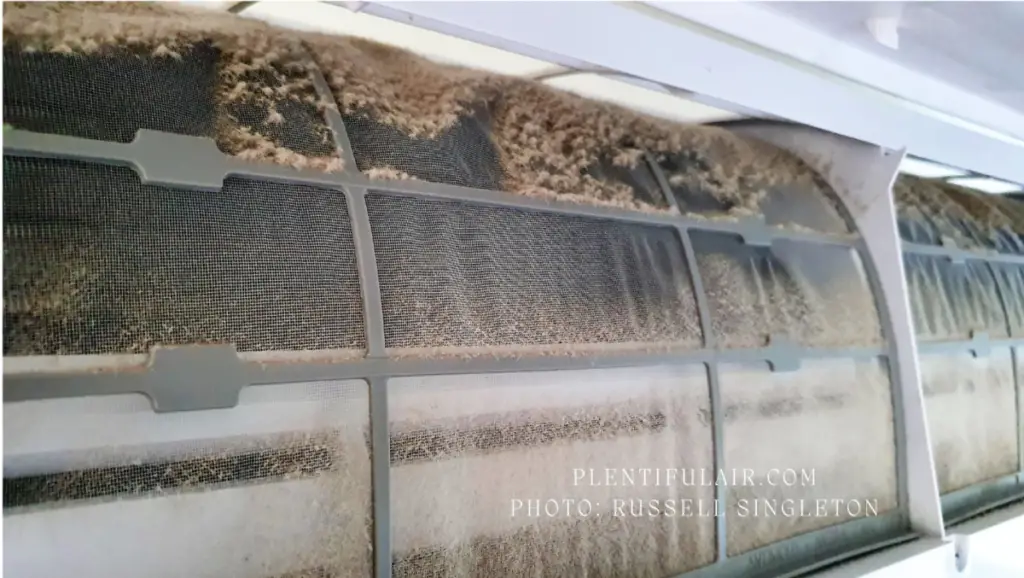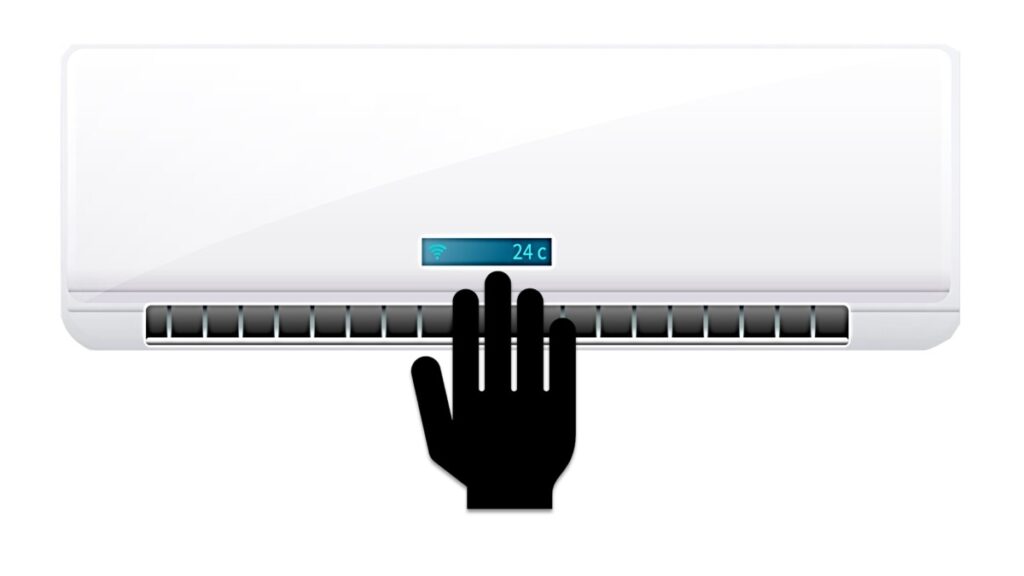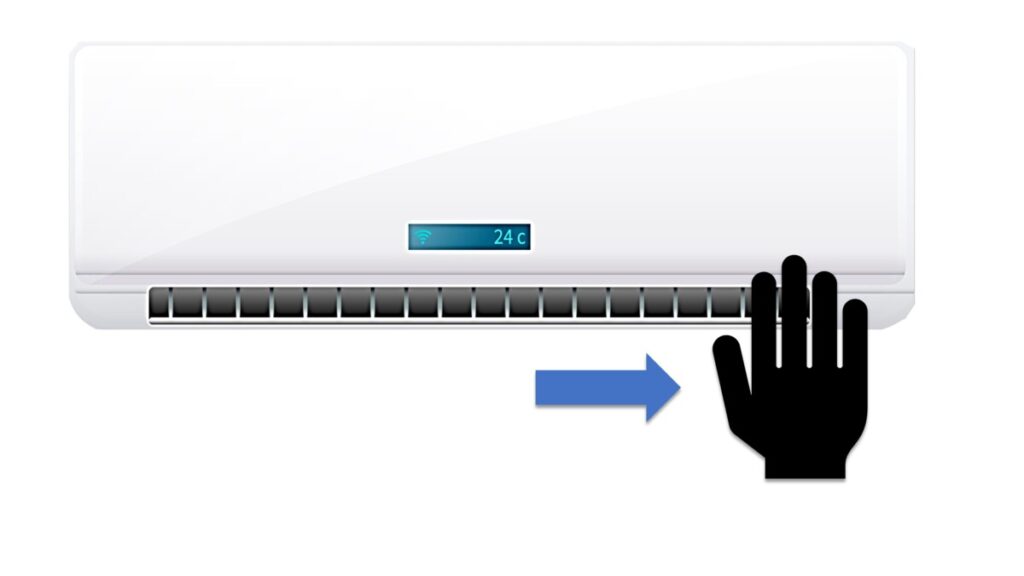Around 250 million people in the United States use some form of air conditioning in their homes and workplaces. Overtime, AC filters can become so dirty you might wonder what could be causing the build up.
An air conditioner filter can become excessively dirty because of leaky air ducts, mold or the fan settings. The presence of pets around the home, the filter types used in the AC, temperature changes, recent nearby construction, or ongoing renovations can also result in a dirty AC filter.
This article will take you through all the possible reasons why an air conditioner filter could be excessively dirty and provide a step-by-step guide on how to deal with each issue.
8 Reasons Why Your AC Filter Is So Dirty

There are various reasons why an air conditioner filter can become dirtier than usual. The type of filters you use in the air conditioner, how long the filter has been used, the last time the filter was replaced and numerous home activities can all lead to the air conditioner filter becoming dirty very quickly.
If your AC is issuing an error code then read this post.
Here are all the reasons why an AC filter could be dirty, and how to fix them:
1. Filter Type
A common reason an air conditioner filter is really dirty is the type of filter used in the AC unit.
Filters play a very important role in AC systems by trapping the indoor contaminants during heating and cooling processes. The type of filter you utilize in an AC determines how long it will serve you and when it will need replacing.
Like everything else, there are high-quality AC filters and those of low quality. Buying filters specified in the your user manual is always the best option. Using low-quality or cheap filters will result in you replacing them sooner and typically more regularly because they become clogged quickly.
Some filters are specially designed to catch more pollutants, and will become dirty faster than other filters.
Take, for example, the one-inch pleated filter. Because they offer more surface area to trap particles, 1-inch air filters from anywhere between MERV 8 to MERV 13 trap a lot more dirt and dust than other filters. This makes it easy for them to get dirty quickly.
The filter’s lifespan also matters because each and every filter has been specially designed to last for a certain period. A good example is fiberglass filters. They are very affordable but only last for several days.
Diagnostic features of using a wrong filter.
- It is cheaper than a genuine/branded filter.
- It gets clogged very quickly.
Solutions.
- Consult the user manual on the types of replacement filters you need for your AC.
- Only use the filters recommended by the user manual.
- Consider using MERV 13 rating filters.
- Consider True HEPA filters.
2. The Fan Settings
AC filters can be dirty because of the fan settings.
Air conditioners come with programmable settings for the fan. Most air conditioners have two thermostat fan settings; AUTO and ON. Each setting controls how the air conditioner operates.
The ‘ON’ setting implies that the fan will operate continuously, pushing air through the house whether or not the air conditioner is on. On the other hand, an air conditioner set on ‘AUTO’ will only move the air while it is cooling.
If the fan is set to ‘ON,’ the fan will run continuously even if the system is not in a heating or cooling cycle. As a result, the filter will constantly capture airborne particles, quickly becoming dirty.
Each fan setting has pros and cons. For instance, if the fan is set to ‘ON’, it will filter out a large amount of contaminants but will consume more power and the filters will become more clogged easily. The ‘AUTO’ setting on the other hand is energy-efficient but it means that your air quality might deteriorate between cooling cycles.
Diagnostic features
- The air conditioner filter getting dirty quickly.
- High utility bills.
Solutions
- Put your air conditioner on the ‘AUTO’ mode.
3. Leaky Air Ducts
Leaky air ducts can also be a reason for an air conditioner’s filter getting dirty. This is caused by the simple wear and tear. The wear and tear on the air conditioner system are caused by temperature variations, high humidity, and vibrations caused by air circulation.
Pests and pressure imbalance can also cause leaks in the air ducts.
When a duct problem appears, conditioned air escapes into your living spaces through gaps, cracks, and seams in the ducts. Normally, the leakage can be addressed by sealing.
However, seals can fail over time, duct material can corrode, and duct connections might detach, resulting in air duct leaks.
Diagnostic features.
- High electricity bills.
- Filters becoming really dirty, quickly.
- Leaky air ducts cause delayed cooling.
- Uneven heating and cooling.
Solutions.
- Turn on your air conditioning.
- Obtain access to the ductwork.
- Place your hand over the metal to check the connections between each length of the duct.
- The connection is slack, and there is an air leak if you feel the air against your hand.
- Hire a HVAC technician to come fix the issue for you.
- To avoid future leakages:
- Reduce the humidity around the air ducts as much as possible.
- Consider investing in a dehumidifier to keep humidity levels down.
- Any ducts that obstruct airflow should be unblocked and cleaned regularly.
- Clean and replace your air filters regularly.
4. Presence Of Pets
Pets are another reason your air conditioner filter could be dirty.
When a home has pets, especially furry ones such as cats or dogs, the indoor air becomes circulated with fur (even if you can’t see it). Normally, some dogs and cats shed more than others. As they move around the house and release fur, the air conditioner filter captures them and gets clogged quickly.
Air conditioner filters in homes with pets become clogged much faster than in homes without. Especially if they are furry pets.
Pets also produce pet dander, which are microscopic skin particles. When they shed and the air conditioner is turned on, the dander is evacuated from the indoor space and sticks to the air conditioner’s filter.
Pets can also introduce dirt or dust into the indoor air from outside. For instance, if a cat or dog plays in the sand and comes into the house, the dust and dirt can be carried in the furs to the house.
It is always advisable to consider investing in an air purifier if you have pets due to fur, pet dander, and smells – a complete guide to air purifiers for pet dander and hair is available here.
Solutions:
- Consider purchasing an air purifier.
- Brush and wash your pets regularly.
- Buy true HEPA filters.
- Replace filters as required.
5. Temperature Changes
Temperature change is an often overlooked reason for an air conditioner filter being dirty. Temperature often affects AC filters because of the change of seasons, i.e., winter and summer.
The quantity of dirt and particles that accumulate on an air conditioner filter is usually proportional to the amount of air that is cycled through it. Because more air is being passed through the air filter when it is hotter outdoors, and the system is often running, the air filter will clog up faster.
Solutions.
- Install a programmable thermostat.
- Invest in a humidifier.
- Use fans when necessary.
6. Recent Construction Around Or Ongoing Renovations
Your air conditioner’s filter could also be dirty because of ongoing renovations around the house or recent constructions in the neighbourhood. When there is an ongoing construction or renovation, many pollutants or contaminants become present in the house before being captured by the air conditioner filter.
Also, if there is an ongoing construction around the home, dirt and dust may travel from outside to the indoor air.
As the air conditioner works, it traps all the dirt, dust, and contaminants from the air; hence it gets dirty. The higher the contaminants in the air, the faster the AC filter gets dirty or clogged.
Solutions
- Change filters during and after renovations or constructions.
- Buy an air purifier.
- Schedule regular maintenance and cleaning of the air conditioner.
- Replace the air conditioner filters as required and on time.
7. Mold
An air conditioner filter can become really dirty because of mold.
Moist habitats can be created by the conditions in a central AC or HVAC unit. When this happens, mold develops because it grows and thrives in wet places.
When mold infests the air conditioner system, it causes the filters to typically become black. Mold is also prone to developing in condensation coils and air ducts in the air conditioner systems.
Although condensation in the air conditioner is common, it should be monitored, otherwise condensation can mix with dirt and dust and eventually develop black mold.
Apart from causing your AC filters to be dirty, mold has health effects on you and the members of your family. Constant exposure can lead to breathing issues, allergy attacks, or asthma attacks.
Types of mold that can grow in an Air Conditioner.
- Mucor.
- Chaetomium.
- Starchryborys.
- Acremonium.
- Aspergillus.
- Fusarium.
Diagnostic features of mold.
- Switch off the air conditioner system.
- Access the filter position.
- Remove them and examine signs of mold.
- There is mold if the filter has turned black.
- A musty smell also indicates the presence of mold.
- Do you see any black dust surrounding the AC’s air vents? That indicates mold.
- Mold has effects on people as well. Check if any family member experiences frequent or severe allergic reactions. According to EPA, mold symptoms include wheezing, runny nose, coughing, and red or itchy eyes and throat.
Solutions to mold in an AC.
- It would help if you immediately remove and discard your filters when you notice a mold infestation problem.
- Mold tends to grow and spread faster if there is dampness around the house. Contact a professional to clean the affected areas.
- Schedule regular cleaning and maintenance. Regularly maintaining and cleaning your air conditioning system will help keep mold at bay and guarantee that your air filter remains clean.
- Consider purchasing an air purifier that eliminates mold and its spores.
- Find the source of the mold and get your air conditioning system tested to ensure mold isn’t growing inside the air handler.
- Ensure there’s no damp spaces around your air conditioner, as that will encourage mold growth.
8. House Activities
Day-to-day activities around the home can lead to a dirty air conditioner filter. Take, for example, using candles.
People use candles for different reasons; either for meditation or ambience. However, if you use candles in your household, it can cause your air conditioner filters to become dirty because of soot.
Soot can quickly dirty your air filters, leaving you wondering why your AC/HVAC filter becomes dirty faster than it should and how often you should change it. Other causes of soot include fireplaces and gas water heaters.
As a byproduct, candles produce black soot. Candle soot, especially scented ones, can degrade the efficacy of your air filter over time due to the materials used to produce them.
Homes and wildfires produce ash, soot, and smoke. The accumulation of soot and ash causes poor indoor air quality. The soot and ash are subsequently absorbed by the air conditioner, causing the filters to become unclean more quickly. Gas water heaters also produce black soot.
Diagnostic features of soot.
- Your gas appliances produce a yellow flame.
- You use candles and have a gas water heater, which produces soot.
Solutions to soot.
- Instead of using petroleum jelly or vegetable oil candles, go for natural candles like soy or beeswax candles.
- Instead of using gentle candles, think about using harsh ones.
- Invest in high-quality candles.
- To avoid soot from making your AC filters dirty, trim candlewicks to a quarter inch before igniting each time.
- Avoid excessive airflow around the candle as it causes soot to form.
- Have your gas water heater’s burners inspected to see whether they’re clogged or dirty, as this might lead to soot build-up.
- Check for lack of oxygen around the gas water heater; this could throw off the air-to-gas ratio essential for a clean flame.
What causes an AC filter to turn black?
AC filters can turn black because of mold, blocked air filters, soot from candles, fires, gas water heaters, mineral build-up, or leaking carbon monoxide gas. A black AC filter can also be caused by poor air flow or dirt and the presence of debris.
Plentiful Air has more information on black AC/HVAC filters here.
How dirty should an AC filter look?
A normal and effective AC filter should look clear and free of dust or dirt. If an air conditioner filter looks clogged, dusty, gray, black, or discolored, it is dirty. Usually, the first physical sign of a dirty AC filter is the color change. You shouldn’t let the AC filter to become clogged before changing it.
Other signs of a dirty filter include poor indoor air quality, higher electricity bills, disturbed air flow, accumulation on blower fans and ductwork, and dust near air vents.
How to tell if an air conditioner is dirty?


Hold your hand in the middle of the air conditioner and feel how strong the air is blowing, then move your hand to either the right or left side of the unit. If it feels stronger at the edges then it needs cleaning.
The reduction of air flow in the center of the AC occurs due to the build up of dirt, dust, and grime on the fan blades. In this case, just changing the AC dust filter is not enough and you’ll need to give the fan a good clean as well or get it professionally cleaned.
Can a dirty AC filter cause your house not to cool?
Clogged air conditioner filters can prevent an AC from reaching the proper indoor temperature levels. Dirt and debris can cause less air to flow through the system, resulting in undesirable high temperatures in the home.
